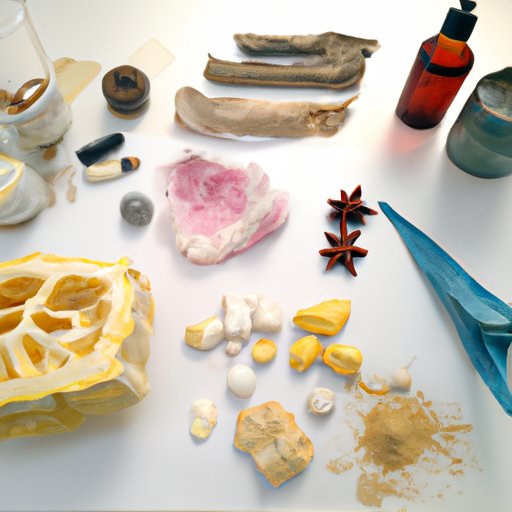Introduction
If you’re a fan of beautiful scents but not so keen on the hefty price tag that often accompanies luxurious perfumes, why not try making your own? perfume-making may seem overwhelming at first, but with a little patience and the right tools, crafting your fragrance can be both fun and rewarding. This guide will walk you through the steps of making perfume, from the necessary equipment and ingredients to tips on customizing scents and ensuring environmental sustainability.
Step-by-step guide to making perfume
The first step in the perfume making process is to gather all the necessary equipment and supplies, such as a glass beaker, pipettes, and essential oils. The beauty of perfume-making is that it is possible to mix and match scents according to one’s personal preference. Some popular choices include lavender, rose, and sandalwood, and these ingredients can be used in different combinations to create unique scents. The next step is to measure and mix your chosen scent components carefully, using a precise recipe to achieve the desired result. Once your perfume scent is complete, ensuring it stays fresh and longer is essential, which is why it is advisable to store it in a tightly sealed bottle in a cool, dry place.
Ingredient focus
Perfume-making’s beauty is less about formulas than it is about personal preference. There are hundreds of natural and synthetic oils available on the market today, each with its scent complexities that can contribute to the perfume’s overall aroma. When selecting ingredients, it is crucial to understand the general chemistry of perfume and the different scent notes. Base, middle, and top notes all play a role, and each contributes a unique scent to the final product. Mixing and matching these scents can be difficult, but with adequate experimentation, one can find the perfect blend.
Historical perspective
Perfume making is not a new art; it has been around since ancient Egypt, meaning it has been in existence for over 5,000 years. Ancient Egyptians used scents liberally, with both men and women wearing perfume daily. Today, advances in technology have transformed the industry and allowed for the development of new synthetic ingredients. Aromas have been critical since ancient times, and today, different scents evoke distinct nostalgia and emotions in humans. Perfume-makers are inspired by this and create perfumes that connect to their target market’s nature and emotions.
DIY perfume kits
Ready-made perfume-making kits allow for hassle-free perfume creation, making it easy for beginners to explore this art. The advantages lie in the ease of use, as every ingredient is pre-measured, the cost-effectiveness, and the lack of mess since everything comes pre-portioned. Kits are customizable, allowing beginners to explore different scents, and provide a great starting point for perfume making.
Tips for customizing scents
Customizing perfumes begins with walking up to scents that one prefers and blending them to create a unique scent. In experimenting with scents, it is important to consider the different categories of fragrances, essential oils, and personal preferences in creating scents. Experimenting with different scents, including floral, fruity, fresh, spicy, and woody can help create unique scents that are perfect for any occasion.
Environmental considerations
Environmental sustainability is essential in perfume making. The growing of plants, extraction of essential oils, and production of synthetic scent molecules are processes that require significant amounts of energy and resources. It is therefore important for consumers and manufacturers to take steps towards sustainable perfume production by selecting natural and ethically-sourced oils, using recycled or reusable packaging, and supporting environmentally responsible businesses.
Perfume for health and wellness
Perfumes are not just for perfume lovers or people looking to smell good. Today, certain scents promote wellness and health. Aromatherapy is the use of essential oils to alleviate different physical and emotional challenges. Studies have shown that fragrances affect moods, which is why it is so important to be intentional in selecting fragrances. Some pleasant scents can help in relaxing, alleviate stress and anxiety, and promote an overall sense of calm.
Conclusion
Now that you know how to make perfume, it’s time to explore the world of scent and create signature perfumes that are perfect for any occasion. Experimentation, while intimidating, is essential to finding the perfect scent. And when you find it, store it appropriately, and ensure you’re investing in environmentally sustainable and socially-conscious business practices. Always remember to be intentional in choosing the right scent because it will affect your wellness emotionally and physically.
